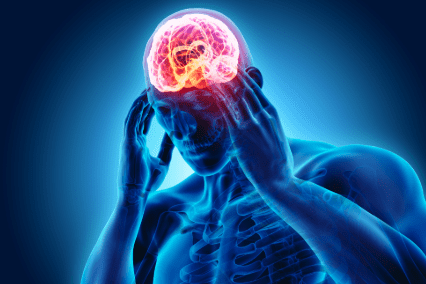The human body is a remarkable system, constantly working to maintain balance and health. Among its many vital organs, the kidneys play a central role in detoxification, ensuring that our body remains free from harmful substances. While many people associate detoxification with diets or juices, the truth is that our kidneys are our most efficient natural detoxifiers, tirelessly filtering blood every moment of our lives. Understanding how they work helps us appreciate their importance and encourages habits that support their optimal function.
The kidneys are two bean-shaped organs, each about the size of a fist, located on either side of the spine just below the rib cage. Despite their small size, their impact on overall health is enormous. Every day, they filter roughly 50 gallons of blood, removing waste products, excess salts, and toxins. This filtration process is vital for maintaining the chemical balance of the blood, which is necessary for muscles, nerves, and other organs to function properly. Without healthy kidneys, waste products can accumulate in the bloodstream, leading to serious health issues.
At the heart of the kidney’s detoxification process are tiny structures called nephrons. Each kidney contains over a million nephrons, and each nephron works like a miniature filtration unit. Blood enters the nephron through a network of tiny blood vessels, and the filtration process begins. The nephron selectively allows water, salts, and small molecules to pass through, while retaining larger molecules, such as proteins and blood cells, which are essential for the body. The filtered fluid, known as filtrate, then travels through a complex series of tubules, where additional adjustments occur. Valuable substances, such as glucose and certain ions, are reabsorbed back into the bloodstream, while waste products remain and are eventually excreted as urine.
One of the primary waste products the kidneys remove is urea, which is formed when the body breaks down proteins. Ammonia, another byproduct of protein metabolism, is converted into urea because it is less toxic. Alongside urea, creatinine, a product of muscle metabolism, is also filtered out. These substances, if allowed to accumulate, can be harmful to the body, causing symptoms such as fatigue, nausea, and confusion. By efficiently removing them, the kidneys maintain a healthy internal environment, allowing other organs to function without interference from toxic buildup.
The kidneys also play a crucial role in regulating fluid and electrolyte balance. Proper hydration and balanced electrolyte levels are essential for nerve signaling, muscle contractions, and maintaining blood pressure. Sodium, potassium, calcium, and phosphate are among the electrolytes managed by the kidneys. When levels of these minerals become too high or too low, the kidneys respond by adjusting the amount excreted in urine. This fine-tuning process ensures that the body operates within a safe range, preventing dangerous imbalances that could affect heart function and other critical systems.
Detoxification is not only about removing chemical waste. The kidneys are also involved in eliminating excess hormones and metabolic byproducts. For instance, when the body produces hormones such as insulin, aldosterone, or parathyroid hormone, any excess or broken-down molecules are filtered out to maintain hormonal balance. This regulation supports various physiological processes, from growth and metabolism to blood pressure control.
Another fascinating aspect of kidney function is their role in acid-base balance. The human body generates acids during normal metabolic activities, and the kidneys help neutralize them by excreting hydrogen ions and reabsorbing bicarbonate. This process keeps the blood’s pH within a narrow range, which is crucial for the proper functioning of enzymes and other proteins. Without this balancing act, even minor deviations in blood pH could disrupt metabolic processes and lead to health complications.
Beyond filtering and balancing, the kidneys are also hormonal powerhouses. They produce erythropoietin, a hormone that stimulates red blood cell production in the bone marrow. They also help regulate blood pressure through the renin-angiotensin-aldosterone system, which controls fluid volume and vascular resistance. By integrating detoxification with hormonal control, the kidneys ensure that the body’s internal environment remains stable despite constant changes in diet, activity, and external conditions.
Healthy kidneys are the foundation of effective detoxification, but their function can be compromised by lifestyle choices, medical conditions, and age. Chronic high blood pressure, diabetes, and certain medications can impair filtration and damage nephrons over time. This makes it essential to support kidney health through proper hydration, balanced nutrition, regular physical activity, and routine medical checkups. Staying hydrated helps the kidneys flush out waste efficiently, while a diet low in excessive salt and processed foods reduces the risk of overworking these vital organs.
While kidneys perform detoxification naturally, some people turn to commercial detox products or extreme diets, believing these methods enhance kidney function. The reality is that for most healthy individuals, the kidneys do not require any special interventions to cleanse the blood. Instead, lifestyle habits that maintain overall health provide the best support for kidney function. Simple practices, such as limiting excessive alcohol intake, avoiding smoking, and controlling blood sugar levels, can significantly reduce the risk of kidney-related complications.
Understanding the role of the kidneys in detoxification also helps explain why certain symptoms warrant medical attention. Persistent swelling, fatigue, changes in urine output, or unexplained high blood pressure can indicate kidney stress or dysfunction. Early detection of kidney issues is vital, as many problems progress silently until they become severe. Regular kidney function tests, often included in routine blood work, can monitor creatinine levels, glomerular filtration rate, and other key indicators to ensure the kidneys are working efficiently.
In conclusion, the kidneys are remarkable organs that act as the body’s natural filtration and detoxification system. They remove metabolic waste, maintain fluid and electrolyte balance, regulate blood pressure, support hormonal activity, and preserve acid-base homeostasis. Their work is continuous and essential, quietly keeping the body’s internal environment stable and safe. By understanding their role, we gain a deeper appreciation for the intricate systems that sustain life and can make conscious choices to protect kidney health. Treating kidneys with care through proper hydration, balanced nutrition, and preventive healthcare ensures they continue their vital role in detoxification, allowing the body to function smoothly and efficiently every day.






